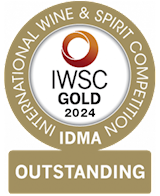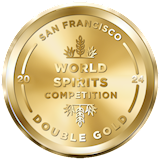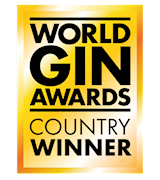Best Korean Alcoholic Beverage Types
Maesil-ju is a traditional liqueur made with small-sized Asian plums (Prunus mume). Either unripe green or ripe yellow fruits can be used, sometimes even a mixture of both varieties. The drink is traditionally produced by steeping the fruit, together with sugar, in soju – traditional Korean spirit usually distilled from rice.
The combination is macerated for at least several weeks until the beverage attains its distinctive golden color and bitter-sweet flavor. The fruit is usually strained, though several plums can be left inside jars or bottles. Maesil-ju is traditionally enjoyed neat, served in small shot glasses.
Makgeolli is the oldest Korean rice wine that dates back to the 10th century. It is usually made from rice which is fermented with nuruk—traditional Korean starter. The fermentation process produces a lightly fizzy drink with a typical milky appearance and a slightly sweet flavor.
Makgeolli was the most popular Korean drink until the 1980s when it was largely overshadowed by imports, and it gained the status of a farmer’s drink (nongju). However, in the last decade, the drink has seen an increase in popularity, and it can be found in many South Korean bars.
VARIATIONS OF Makgeolli
Baekseju is a clear, herb-flavored Korean rice wine made with fermented glutinous rice. Ginseng is the dominant flavor, while the combination usually includes a blend of herbs and spices such as ginger, omija (Schisandra chinensis), goji berries, or cinnamon.
It is a subtly sweet drink with a distinctive herbaceous character, usually bottled at 13% ABV. Although the first written mention of baekseju dates back to the 17th century, in 1992, Kooksoondang introduced the first modern interpretation of the drink.
Cheongju is a variety of South Korean rice wine that is made from fermented polished rice. It is then filtered to produce a clear, crisp drink with a subtly sweet flavor. Cheongju is an ancient beverage that was once enjoyed on the royal court, and it is still often used a ceremonial or a welcome drink.
It is also commonly employed in cooking, primarily in marinades and various sauces.
VARIATIONS OF Cheongju Rice Wine
MAIN INGREDIENTS
Poktanju is a simple South Korean combination of beer and soju—a traditional Koran rice spirit. Also known as soju shot or bomb shot, the drink is made by dropping a shot of soju in a glass of beer. Once prepared, the cocktail is gulped as quickly as possible.
Unsurprisingly, this mixed drink can get people intoxicated quickly. Poktanju is often enjoyed as a social drink. It is considered a slightly more robust and heavier version of somaek, which also combines beer and soju.
Korean soju is distilled from fermented rice, or optionally wheat, barley, sweet potatoes, or tapioca. It is believed that it initially appeared when Mongols introduced the distilling technique to the Koreans, sometime in the 13th century.
The first varieties were made with rice, but in 1965 Korean government introduced a ban on using rice, and many producers looked for alternative sources. Soju is a clear spirit that is usually low in alcohol and has a mild, neutral flavor, which makes it work well with a wide array of dishes.
THE BEST Soju Spirits
Agric. Corp. DanongBio
Gamuchi Soju
IWSC- International wine & spirit competition - Spirit Gold Outstanding 2024

Somaek is a simple Korean cocktail that combines beer and soju—a traditional Korean rice spirit. The ideal choice for this cocktail is lager or pilsner, which should provide a nice neutral base for soju. The ratio of the drinks can vary, but the suggested combination is three parts soju to seven parts beer.
There are several ways to make somaek, but beer is usually poured first, and a shot of soju is added next. Adding a shot of soju and then topping it with beer is also common. Somaek is mixed with chopsticks or a spoon. Chopsticks are placed inside the drink and are then quickly struck, while the spoon is used to hit the bottom of the glass.
MAIN INGREDIENTS
Often called a type of makgeolli, dongdongju is a type of rice wine made with glutinous rice, starter, and water. Unlike the filtered makgeolli, dongdongju is shortly fermented and is not filtered. This technique leaves the rice kernels floating on top of the drink.
Dongdongju is an opaque, milky drink with a sweet and subtly tart flavor. It is traditionally served in bowls, and it should be enjoyed chilled.
Bokbunja-ju is a Korean drink, commonly referred to as fruit wine, made from bokbunja fruit (Rubus coreanus)—black raspberry native to Korea, Japan, and China. Traditional versions, which are usually homemade, come in the form of a liqueur made by steeping the berries and sugar in a neutral spirit, typically shōchū.
Contemporary varieties are usually factory produced and made by fermenting the fruit and yeast. The base is then filtered and usually bottled between 14% and 19% ABV. Bokbunja-ju is a dark red drink with fruity aromas and flavors. It is not cloyingly sweet and has a dry finish.
Moju is a thick Korean drink with fairly low alcohol content. It is based on makgeolli—traditional Korean beverage made with fermented rice—which is brewed with herbs and spices that usually include cinnamon, ginger, jujube, ginseng, and licorice root.
Moju is lightly sweetened, and although it is traditionally enjoyed chilled, it can also work well as a heated, warm drink. It is usually associated with Jeonju, and it is considered a great hangover remedy that goes well with hearty South Korean soups and stews.
Best Korean Alcoholic Beverage Producers
AWARDS

IWSC- International wine & spirit competition - Spirit Gold Outstanding
2024

IWSC- International wine & spirit competition - Silver
2024
BEST Agric. Corp. DanongBio Spirits
AWARDS

SFWSC - San Francisco World Spirits Competition - Double Gold
2024
BEST Jinmaek Soju Spirits
AWARDS

SFWSC - San Francisco World Spirits Competition - Double Gold
2024
BEST KI ONE Spirits
AWARDS

World Gin Awards - Country Winner
2024
BEST BUJA GIN CO., LTD. Spirits
AWARDS

World Beer Awards - Gold
2023

World Beer Awards - Country Winner
2023

World Beer Awards - World’s Best Stout & Porter
2022
BEST Original Beer Company Beers
AWARDS

IWSC- International wine & spirit competition - Spirit Gold
2024
BEST Hwasimjujo Spirits
AWARDS

IWSC- International wine & spirit competition - Spirit Gold
2021
BEST Golden Blue Spirits
TasteAtlas food rankings are based on the ratings of the TasteAtlas audience, with a series of mechanisms that recognize real users and that ignore bot, nationalist or local patriotic ratings, and give additional value to the ratings of users that the system recognizes as knowledgeable. TasteAtlas Rankings should not be seen as the final global conclusion about food. Their purpose is to promote excellent local foods, instill pride in traditional dishes, and arouse curiosity about dishes you haven’t tried.












